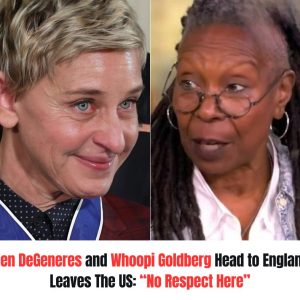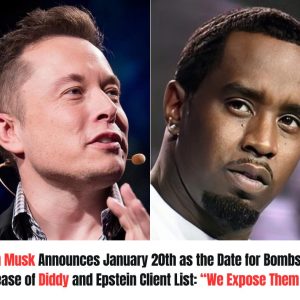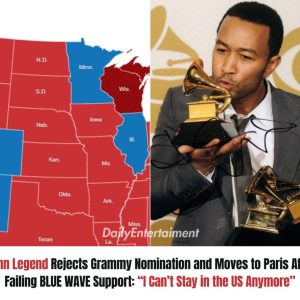
Laurence Ralph
Dr. Ralph is a professor of anthropology at Princeton.
The rap battle between Drake and Kendrick Lamar is about more than whatever personal beefs these two men have with each other. As many have noted, it is a significant moment in hip-hop history, and not just because Mr. Lamar’s diss track “Not Like Us,” released last week, has become the hip-hop song with the most plays on U.S. Spotify in a single day — surpassing the high set previously by Drake and Lil Baby.
What sets this rap battle apart from previous high-profile hip-hop feuds is its magnitude and implications for popular music. Hip-hop, born as an underground movement, has long been a global phenomenon, leading certain artists to blur the lines between authenticity and commercialization. The global pop audience has always been more drawn to a simplified hip-hop sound devoid of the complex lyrics and politicized messages that characterize “conscious” rap.
Mr. Lamar’s victory signals a resurgence of lyrically rich rap — and a return to the roots of hip-hop culture — all while establishing a new template for relevance in an era when content can go viral instantly on social media and streaming platforms. If Drake, who has become the face of rap’s mainstream pop faction, has lost this battle, that setback is not his alone.
Mr. Lamar’s ability to write layered and intricate lyrics has long been lauded. But this battle has brought new attention and enthusiasm to the particular artistic element at which he excels. Fans have scrambled to decipher his complex verses with each new release. (The website Genius, where users annotate lyrics, crashed from the volume of visitors investigating this feud.) Mr. Lamar’s apparent decision to remove copyright protections for “Not Like Us” has also enabled a wide dissemination of the track, allowing content creators to monetize posts featuring the song.
Removing these kind of constraints on the distribution of the song signals a new and savvy approach to marketing and sales in the music industry. It’s another facet of Mr. Lamar’s victory — enlisting countless unseen collaborators to spread his message and join his crusade.
Drake has been doing his best to counter and innovate. His second volley in the battle, “Taylor Made Freestyle,” incorporated A.I. to enlist two iconic figures from West Coast hip-hop: Tupac Shakur and Snoop Dogg. (Drake removed the song from social media after objections from Mr. Shakur’s estate.) Drake also took direct aim at Mr. Lamar’s supposed lyrical prowess, taunting him to respond with a “quintuple entendre.”
Underestimating Mr. Lamar — who won a Pulitzer Prize for his album “DAMN.” — was a questionable move. Mr. Lamar’s response, “Euphoria,” arrived with the precision and effectiveness of a heat-seeking missile. The title “Euphoria” nods not only to the feeling but to the HBO series on which Drake has been an executive producer — a show known for its controversial portrayal of teenage 𝓈ℯ𝓍uality, a parallel that underscores Mr. Lamar’s allegations that Drake harbors inappropriate infatuations.
In the arena of rap battles, entendres are wielded precisely because they imbue words with layers of meaning. Nowhere is this more evident than in the stark contrast between love and hate, the poles around which rap oscillates. In a pivotal moment in “Euphoria,” Mr. Lamar adopted the persona of the late rapper DMX, who in 2012 aired his grievances about Drake on “The Breakfast Club,” a radio show that was a cornerstone of hip-hop media. On the track, Mr. Lamar echoes DMX as he snarls at Drake, “I hate the way that you walk, the way that you talk, I hate the way that you dress.”
Drake parried by questioning Mr. Lamar’s authenticity, characterizing his portrayal of Black empowerment as superficial and insincere. But Mr. Lamar swiftly retaliated, targeting Drake’s alleged cultural appropriation. Authenticity in hip-hop is often tied to a rapper’s ability to embody the distinctive sound of their hometown — something Drake, a Canadian of ambiguous racial identity, has s𝓀𝒾𝓁𝓁fully transcended, crossing geographical and musical boundaries and incorporating regional sounds from across the United States, particularly the South.
In the closing lines of “Not Like Us,” Mr. Lamar zeros in on what he sees as Drake’s vulnerability. Mr. Lamar’s artistry shines through as he seamlessly weaves together social commentary and catchy rhythms. He begins by evoking the painful legacy of Black Americans in chains, then highlights Atlanta’s historical significance as a hub for the slave trade in the South — before drawing parallels to Drake’s exploitation of Southern rap culture for personal gain. His indictment culminates with a damning accusation: “You run to Atlanta when you need a few dollars,” he says. Drake is not a “colleague,” he’s a “colonizer.”
Through his incisive lyrics Mr. Lamar exposes the complexities of cultural identity and power dynamics within the rap industry — all while carrying the banner of lyrical rap. His verbal offensive proves the depth and staying power of hip-hop’s history and culture, with its legacy of lyrical dexterity and complexity.
Armed with these tools and talents, Mr. Lamar managed to topple Drake, and in the process has shown himself, by calling on hip-hop’s traditions, to be more relevant to the current moment. At least until the bell sounds to signal the next round.
Laurence Ralph is a professor of anthropology at Princeton and the author of “Sito: An American Teenager and the City That Failed Him.”





